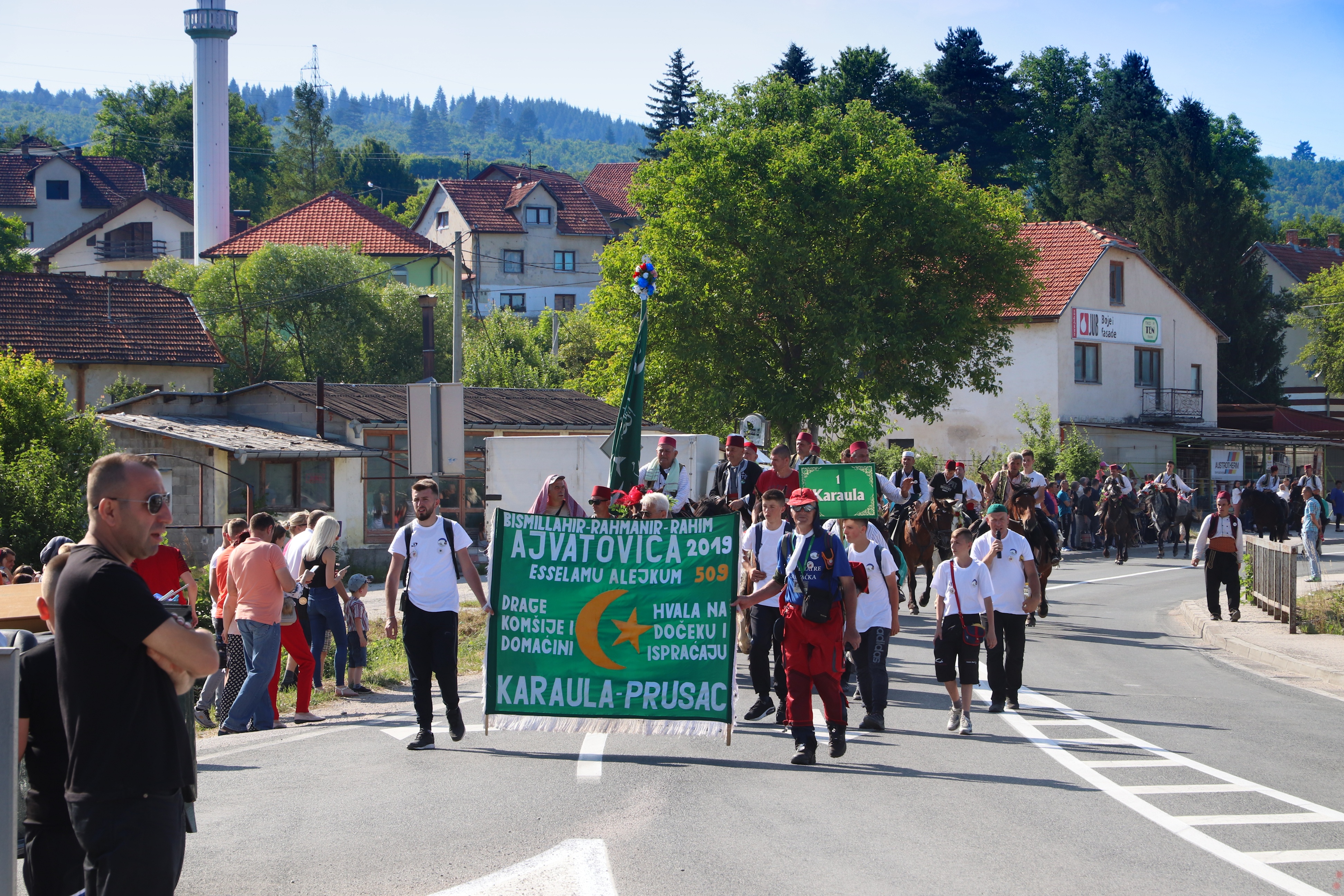Ajvatovica on:
[Wikipedia]
[Google]
[Amazon]
 Ajvatovica ( sr-cyrl, Ајватовица) is the largest Islamic traditional, religious and cultural event in
Ajvatovica ( sr-cyrl, Ајватовица) is the largest Islamic traditional, religious and cultural event in
 Ajvatovica ( sr-cyrl, Ајватовица) is the largest Islamic traditional, religious and cultural event in
Ajvatovica ( sr-cyrl, Ајватовица) is the largest Islamic traditional, religious and cultural event in Europe
Europe is a large peninsula conventionally considered a continent in its own right because of its great physical size and the weight of its history and traditions. Europe is also considered a subcontinent of Eurasia and it is located entirel ...
. It is located near Prusac, Bosnia and Herzegovina
Bosnia and Herzegovina ( sh, / , ), abbreviated BiH () or B&H, sometimes called Bosnia–Herzegovina and often known informally as Bosnia, is a country at the crossroads of south and southeast Europe, located in the Balkans. Bosnia and H ...
. It was named after Ajvaz-dedo (''Grandfather Ajvaz''), a pious Muslim working to enlighten the population and achieve progress in the area.
History of the Holy Site of Ajvatovica
Ajvaz-dedo was a Sufi dervish who arrived in Akhisar (known today as Prusac,Bosnia and Herzegovina
Bosnia and Herzegovina ( sh, / , ), abbreviated BiH () or B&H, sometimes called Bosnia–Herzegovina and often known informally as Bosnia, is a country at the crossroads of south and southeast Europe, located in the Balkans. Bosnia and H ...
) with the conquering Ottoman armies in 1463.
The story of the rock dividing dates back to the legend of Ajvaz-dedo, an elderly man who prayed for water during a long period of drought that threatened the small mountain hamlet of Prusac in 1510, during Ottoman rule
Ottoman is the Turkish spelling of the Arabic masculine given name Uthman ( ar, عُثْمان, ‘uthmān). It may refer to:
Governments and dynasties
* Ottoman Caliphate, an Islamic caliphate from 1517 to 1924
* Ottoman Empire, in existence fro ...
. However, Ajvaz Dede found a powerful spring of water near the village on the mountain Šuljaga. The spring had been shut off by a rock 74 metres long and 30 metres wide, which obstructed the construction of a running water system. Ajvaz-dedo spent 40 days beseeching Allah to split the rock. On the fortieth morning, following his prayers, Ajvaz Dede dreamt that two white rams collided and split the rock. When he awoke, he saw the rock split in half. Wooden pipes were placed along the newly formed canyon to take water into Prusac. Seeing it as a sign of God's miracle
A miracle is an event that is inexplicable by natural or scientific lawsOne dictionary define"Miracle"as: "A surprising and welcome event that is not explicable by natural or scientific laws and is therefore considered to be the work of a divi ...
and blessing
In religion, a blessing (also used to refer to bestowing of such) is the impartation of something with grace, holiness, spiritual redemption, or divine will.
Etymology and Germanic paganism
The modern English language term ''bless'' likely ...
, people began going on pilgrimages to the place where the rock had split.
In 1947, during the early years of communist Yugoslavia, thirteen people were convicted by the district court in Travnik
Travnik is a town and a municipality in Bosnia and Herzegovina. It is the administrative center of Central Bosnia Canton of the Federation of Bosnia and Herzegovina. It is situated in central Bosnia and Herzegovina, west of Sarajevo. As of 2 ...
for "participating in the unauthorized procession on the occasion of the religious holiday Ajvatovica, opposing state officials and violating the ban on flying religious flags." The thirteen individuals were also accused of assaulting two policemen who tried to break up the procession and threatening them with knives while on horseback. Following this incident, maintenance of the religious site was forbidden by the communist Yugoslav government until the tradition was renewed in June 1990. There are annual celebrations in Prusac to commemorate the event. It has become a large tourist and religious attraction called the "Days of Ajvatovica". The 500th anniversary of the event was commemorated in June 2010.
References
Islamic pilgrimages {{Islam-stub